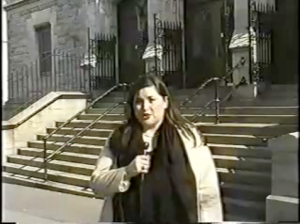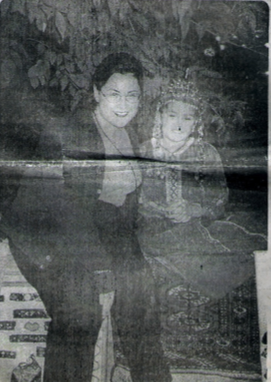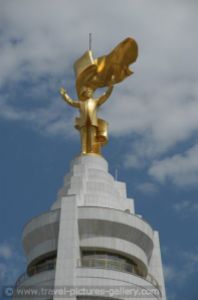Poverty…
To write about it is to see it. To experience it. To try to save people from it.
Hopefully.
Once upon a time, I was a TV reporter in my hometown. I was known – and to be known – by anyone and everyone who knew my stories about last-dash Christmas shopping or Sarah McLachlan coming to town.
I often covered a different caliber of stories, though.
I covered the cases of hundreds of missing children, who were almost never found alive and were a constant reminder of, perhaps, how the media lies in wait for tragedy to befall families. Often of little means, these families would wait, hold vigils and allow us access to their lives that would later make them recognized, for the most unsettling of reasons, at the local grocery store or pharmacy for the rest of their lives.

That was my early take on the media before I spent more than a decade reporting for the ‘big three’ and going to Columbia for my master’s. Somehow I knew if I didn’t take a break – a break to give back and help the plight of children – I would, by not making a decision to do otherwise, become bitter.
At 22, that’s a terrifying prospect.
So I searched my soul, looked back at the list I’d made a couple years earlier and embarked on the most testing experience of my life. I gave up being a local celeb to become a Peace Corps volunteer in Turkmenistan. It was one of the richest, most defining experiences of my life. I still remember a local journalist telling me at my going away party that he could never join the Peace Corps because one can’t be promised a working hair dryer.
In fact, one couldn’t reply on running water – safe to drink or not – bathing regularly or electricity. I remember the cold nights in the open-air outhouse at my host-family home in O. Kulieva, so named for a Russian cosmonaut, I’m told. It was also home to new strands of turbucolosis that the people in the nice trucks from the World Health Organization (WHO) were researching. I can see those tricks as clear as day in my mind’s eye when I get my annual chest X-ray, as I now test positive for TB for the rest of my life.
But I digress.
In the outhouse, those might have been the times my mind wandered and I’d laugh aloud at the just the idea of a hair dryer.
I would laugh because for all the danger of living in Turkmenistan, a month after the U.S. bombed neighboring Afghanistan in retaliation for the U.S. embassy bombings in Eastern Africa in the month leading up to my journey. But for all the worry, mostly loving concern from my family, I am grateful that I was defined by an experience where I was able to help people. Not just people, but children. It was payback. For every child I was required to cover in the name of news, I was able to – hopefully – give some hope to another.

I was a teacher, the children were in what we’d call the 3rd or 4th grade here in the States. They were darling… full of wonderment when they’d see me coming. What might be in store for them that day? I taught them to correctly pronounce words in English as I myself was mastering Turkmen and, later, Russian. I combed through their textbooks that still referred to the USSR and ‘the good Russian boy’ and ‘bad American boy.’ I used my media savvy to get into the British Embassy in the capital, not far outside of town, to ask for donations – even fun fliers and coloring books from airlines – anything that was up-to-date that I could use as up-to-date, engaging teaching materials. By working new connections and those made along the way with other expats from the U.S. and U.K., I created quite a collection. In fact, it became a little library. We would use materials from it at least once a week for drills. The students, a mix of about half-and-half Russian to Turkmen in ratio, would argue for the chance to take part in these so that they could use the glossy, new materials to prepare. How little it took to make them happy, and even more interested in learning!
They amazed me every day.
During breaks, I often stared out the window at the little ones running to the outhouses or playing some variation of basketball on the uneven, small blacktop without hoops. I never found out if the game pre-dated basketball, or vise versa. I talked to other teacher and volunteered to help in the drama department. We started working together to have some of the older students do skits for the younger ones in English. There was such joy; joy at learning English, joy at seeing the ‘big kids’ master the hard words, joy that they were getting extra time and attention from me that would not otherwise have had.
Or so I like to think.
Hope, opportunity and even happiness in a place like Turkmenistan, especially in those times, was a hard thing to define. Despite the poverty, the children seemed happy. I was the one often having crisis of faith, knowing what options really lie ahead for these small people, who could grow into very poor and hungry adults.
As much as I would think of ways out for the kids, the reality kept coming back to me. They were (at that time) ruled by a dictator who kept insisting on creating statue after stature of himself. I remember the unveiling of one such atrocity. We stood in line with nice husband-and-wife doctors from the U.K. who worked for the World Health Organization. This is how I found out about the TB risk in my town. That’s how I found out about a lot of things – we Westerners didn’t get to hang out much or want to be conspicuous by enjoying the release of speaking entirely in English for a spell too often, so we tended to share a lot of information at once, and hold in all the goss until next big event.

But back to the statue.
My first impressions were that it looked like a mini, pink-ish colored Eiffel tower with a statue of Turkmenbashy, Turkmenistan ‘elected’ lifetime ruler on top that did a trick. The statue was posed pointing. We later leaned that the statue on top rotated slightly all day so that the pointing finger was always pointing towards the sun and mecca, to help the Turkmen people learn to be, ‘good muslims’ again. ‘There goes more money not being spent on water, electricity… or education.’ Those days we’d usually gather, a group of us Turkmenistan volunteers with assignments in and just outside the capitol. On some smoky veranda, we’d commiserate about how we wished our projects were getting more attention and swap gossip on other volunteers or, even better, news from back home.
Those were the times I realized most what it meant to be born an American and what it meant to be born a Turkmen or Russian in Turkmenistan. The word poverty springs to mind – for both of us.
While Americans may have all the mod cons and live knowing we’ll have running water, family is often a source of angst rather than joy. There, they know they have each other and that’s all they may ever have. They are deeply socially connected. They take less for granted. They don’t pay what we do for coffee.
Although I haven’t been back in many years now, I miss it and wonder now that I’m married and all, would I feel the same? How would it compare to my life now? As the economy in the U.S. worsens, I’ll be looking for stories that tell me how bad we have it, but sending more care packages back to my old host family in Turkmenistan. As they use camera I send to share photos with smiling faces and the consistent environment they’ve been conditioned to forever, who’s really poor?
Remember, they’re the ones smiling.